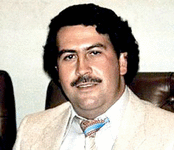|
Replies: 11
| visibility 217
|
110%er [5533]
TigerPulse: 94%
Posts: 3817
Joined: 8/23/13
|
Not safe for life video of ISIS mass executions in Iraq
Jul 29, 2014, 10:18 AM
|
|
I read some on ISIS. So many warring factions in Syria and Iraq-it's quite confusing. People over there are going to continue killing each other for a few more generations-at the least.
http://www.liveleak.com/view?i=7fd_1406604477
|
|
|
|
 |
Oculus Spirit [98511]
TigerPulse: 100%
Posts: 65324
Joined: 7/13/02
|
|
|
|
|
 |
110%er [5533]
TigerPulse: 94%
Posts: 3817
Joined: 8/23/13
|
Re: In other news.....
Jul 29, 2014, 10:32 AM
|
|
wteff???
"In the United States, Eid also reminds us of the many achievements and contributions of Muslim Americans to building the very fabric of our nation and strengthening the core of our democracy."
|
|
|
|
|
 |
Oculus Spirit [98511]
TigerPulse: 100%
Posts: 65324
Joined: 7/13/02
|
Yep. We voted for change.
Jul 29, 2014, 10:34 AM
|
|
We get the Twilight Zone.
|
|
|
|
|
 |
All-In [34414]
TigerPulse: 100%
Posts: 33783
Joined: 9/13/99
|
We need a Prez who publicly declares an intolerance of Islam
Jul 29, 2014, 10:34 AM
[ in reply to In other news..... ] |
|
and all religions, for that matter.
|
|
|
|
|
 |
CU Medallion [56476]
TigerPulse: 100%
Posts: 31756
Joined: 8/27/02
|
Oh, well that's just PERFECT.
Jul 29, 2014, 11:03 AM
[ in reply to In other news..... ] |
|
But I expect nothing less from our Muslim president. And from that Islamo-sympathizer, former President George W. Bush, who held eight Ramadan dinners in office to stress that America’s war with violent extremists was not a war with Islam.
|
|
|
|
|
 |
Rock Defender [54]
TigerPulse: 90%
Posts: 35
Joined: 11/30/98
|
Shocked, literally shocked that these muslims are killing
Jul 29, 2014, 10:30 AM
|
|
each other and have no value whatsoever on human life.
I mean they've only been doing it for all of human recorded history. But by all means let's all talk about how awful it is.
|
|
|
|
|
 |
110%er [5533]
TigerPulse: 94%
Posts: 3817
Joined: 8/23/13
|
#typicalpaladinresponse***
Jul 29, 2014, 10:35 AM
|
|
|
|
|
|
|
 |
Hall of Famer [21703]
TigerPulse: 100%
Posts: 23478
Joined: 8/16/03
|
Ya know, this whole thing has happened before...
Jul 30, 2014, 8:41 AM
[ in reply to Shocked, literally shocked that these muslims are killing ] |
|
to that other religion...
It's so convenient to only be aware of what's going on recently and judge a certain group of people as if it's their particular culture/religion that caused this behavior. It's human nature at work. Their particular historical trajectory has caused this stuff to go down at this particular time. When Christians had their atrocity-ridden religious wars centuries ago the Muslim world was doing the judging.
The New Thirty Years’ War
NEW YORK – It is a region wracked by religious struggle between competing traditions of the faith. But the conflict is also between militants and moderates, fueled by neighboring rulers seeking to defend their interests and increase their influence. Conflicts take place within and between states; civil wars and proxy wars become impossible to distinguish. Governments often forfeit control to smaller groups – militias and the like – operating within and across borders. The loss of life is devastating, and millions are rendered homeless.
That could be a description of today’s Middle East. In fact, it describes Europe in the first half of the seventeenth century.
In the Middle East in 2011, change came after a humiliated Tunisian fruit vendor set himself alight in protest; in a matter of weeks, the region was aflame. In seventeenth-century Europe, a local religious uprising by Bohemian Protestants against the Catholic Habsburg Emperor Ferdinand II triggered that era’s conflagration.
Protestants and Catholics alike turned for support to their co-religionists within the territories that would one day become Germany. Many of the era’s major powers, including Spain, France, Sweden, and Austria, were drawn in. The result was the Thirty Years’ War, the most violent and destructive episode in European history until the two world wars of the twentieth century.
There are obvious differences between the events of 1618-1648 in Europe and those of 2011-2014 in the Middle East. But the similarities are many – and sobering. Three and a half years after the dawn of the “Arab Spring,” there is a real possibility that we are witnessing the early phase of a prolonged, costly, and deadly struggle; as bad as things are, they could well become worse.
The region is ripe for unrest. Most of its people are politically impotent and poor in terms of both wealth and prospects. Islam never experienced something akin to the Reformation in Europe; the lines between the sacred and the secular are unclear and contested.
Moreover, national identities often compete with – and are increasingly overwhelmed by – those stemming from religion, sect, and tribe. Civil society is weak. In some countries, the presence of oil and gas discourages the emergence of a diversified economy and, with it, a middle class. Education emphasizes rote learning over critical thinking. In many cases, authoritarian rulers lack legitimacy.
Outside actors, by what they did and failed to do, added fuel to the fire. The 2003 Iraq war was highly consequential, for it exacerbated Sunni-Shia tensions in one of the region’s most important countries and, as a result, in many of the region’s other divided societies. Regime change in Libya has created a failing state; lukewarm support for regime change in Syria has set the stage for prolonged civil war.
The region’s trajectory is worrisome: weak states unable to police their territory; the few relatively strong states competing for primacy; militias and terrorist groups gaining greater influence; and the erasure of borders. The local political culture confuses democracy with majoritarianism, with elections used as vehicles to consolidate power, not share it.
Beyond the enormous human suffering and loss of life, the most immediate byproduct of the region’s turmoil is the potential for more severe and frequent terrorism – both in the Middle East and emanating from it. There is also the potential for disruption of energy production and shipping.
There are limits to what outsiders can do. Sometimes, policymakers need to focus on preventing things from getting worse, rather than on ambitious agendas for improvement; this is one of those times.
What this calls for, above all, is prevention of nuclear proliferation (beginning with Iran), whether through diplomacy and sanctions, or, if need be, through sabotage and military attacks. The alternative – a Middle East in which several governments and, through them, militias and terrorist groups have access to nuclear weapons and materials – is too horrific to contemplate.
Steps that reduce global dependence on the region’s energy supplies (including improvements in fuel efficiency and development of alternative sources) also make great sense. Economic assistance should go simultaneously to Jordan and Lebanon to help them cope with the flood of refugees. Democracy promotion in Turkey and Egypt should focus on strengthening civil society and creating robust constitutions that diffuse power.
Counter-terrorism against groups such as the Islamic State in Iraq and Syria (which now calls itself simply the “Islamic State”) – whether by drones, small raids, or the training and arming of local partners – must become a staple of policy. It is time to recognize the inevitability of Iraq’s break-up (the country is now more a vehicle for Iran’s influence than a bulwark against it) and bolster an independent Kurdistan within Iraq’s former borders.
There is no room for illusions. Regime change is no panacea; it can be difficult to achieve and nearly impossible to consolidate. Negotiations cannot resolve all or even most conflicts.
That is certainly true, for the time being, of the Israeli-Palestinian dispute. Even if this changes, a comprehensive settlement would help the locals but not affect the dynamics of neighboring countries or conflicts. That said, a narrow ceasefire between Israel and Hamas should be pursued.
Likewise, diplomacy can work in Syria only if it accepts the reality on the ground (including the survival of the Assad regime for the foreseeable future), rather than seeking to transform it. The answer is not to be found in drawing new maps, though once populations have shifted and political stability has been restored, recognition of new borders might prove both desirable and viable.
Policymakers must recognize their limits. For now and for the foreseeable future – until a new local order emerges or exhaustion sets in – the Middle East will be less a problem to be solved than a condition to be managed.
https://www.project-syndicate.org/commentary/richard-n--haass-argues-that-the-middle-east-is-less-a-problem-to-be-solved-than-a-condition-to-be-managed
|
|
|
|
|
 |
Oculus Spirit [78876]
TigerPulse: 100%
Posts: 78623
Joined: 8/2/03
|
You'd think they'd run out of people to kill eventually.***
Jul 29, 2014, 10:42 AM
|
|
|
|
|
|
|
 |
Orange Blooded [3821]
TigerPulse: 100%
Posts: 4418
Joined: 1/27/03
|
That looked fake & staged***
Jul 29, 2014, 11:48 AM
|
|
|
|
|
|
|
 |
All-Pro [673]
TigerPulse: 96%
Posts: 980
Joined: 4/22/11
|
I don't understand why the walk to their deaths.
Jul 30, 2014, 9:42 PM
|
|
If you know you're going to die why not fight back?
|
|
|
|
|
|
Replies: 11
| visibility 217
|
|
|



 to award
the award.
to award
the award.











